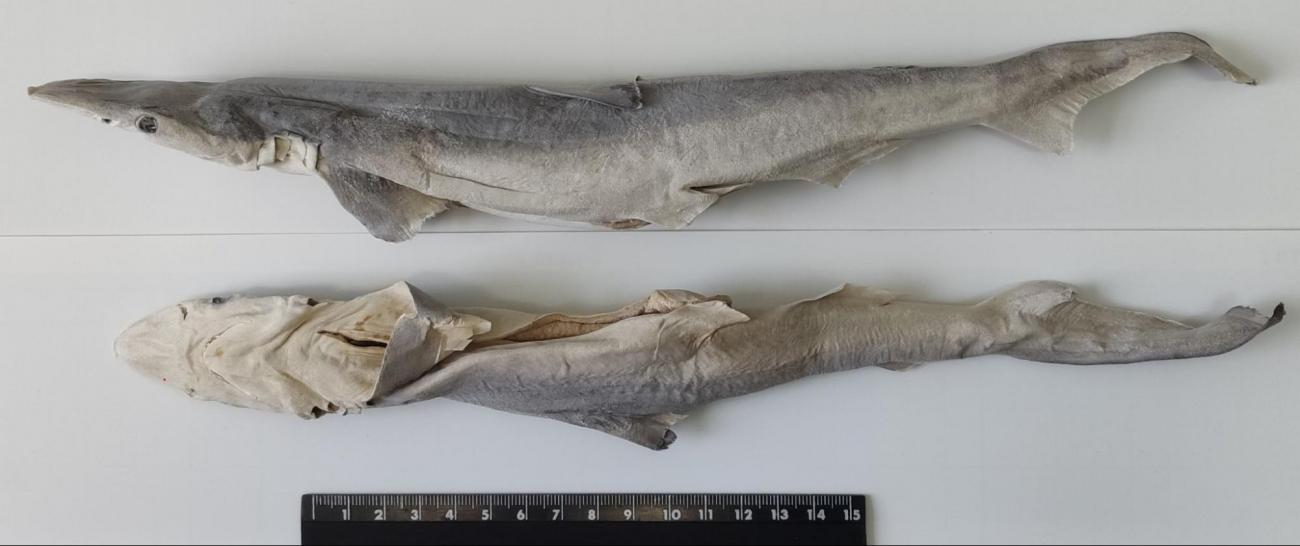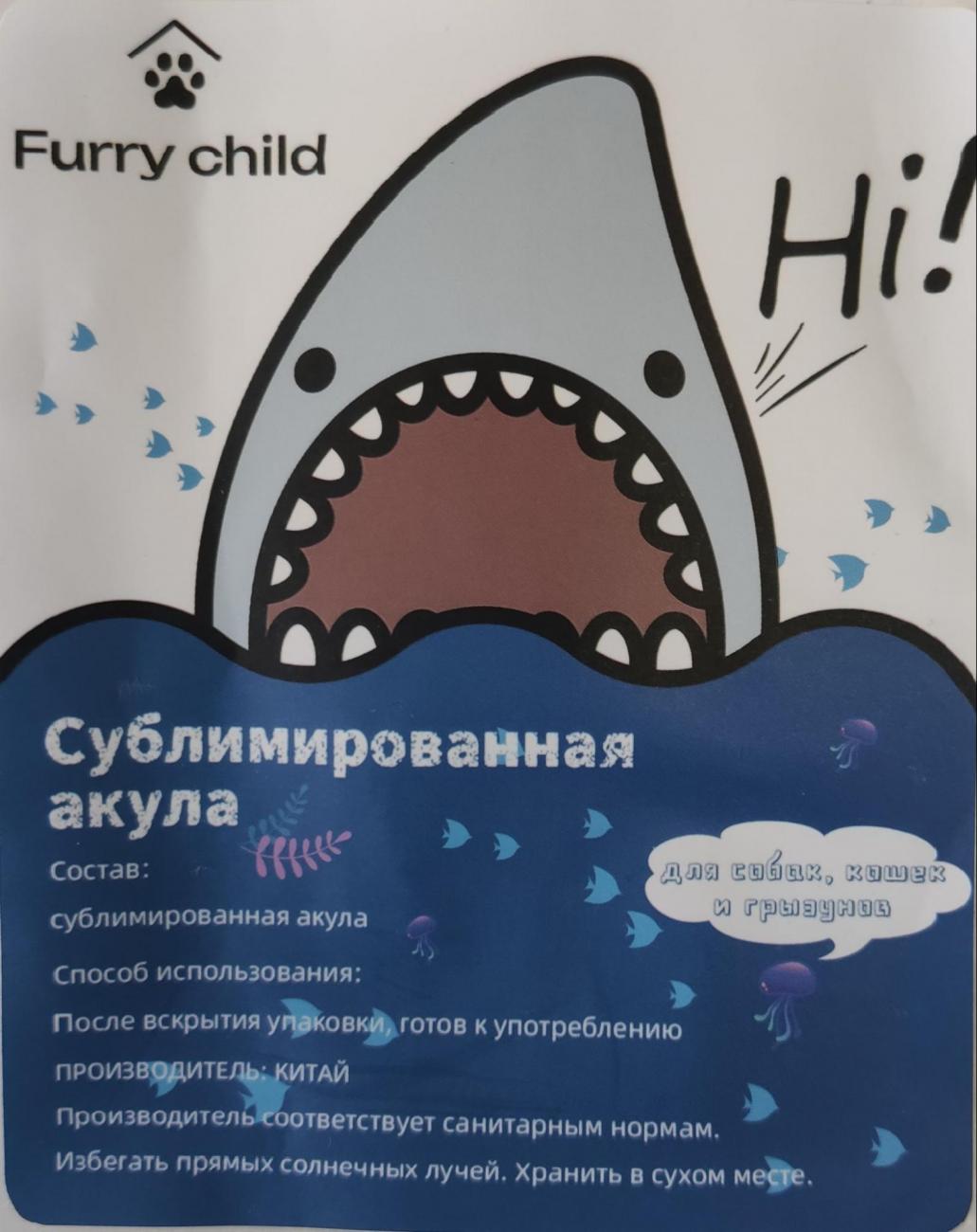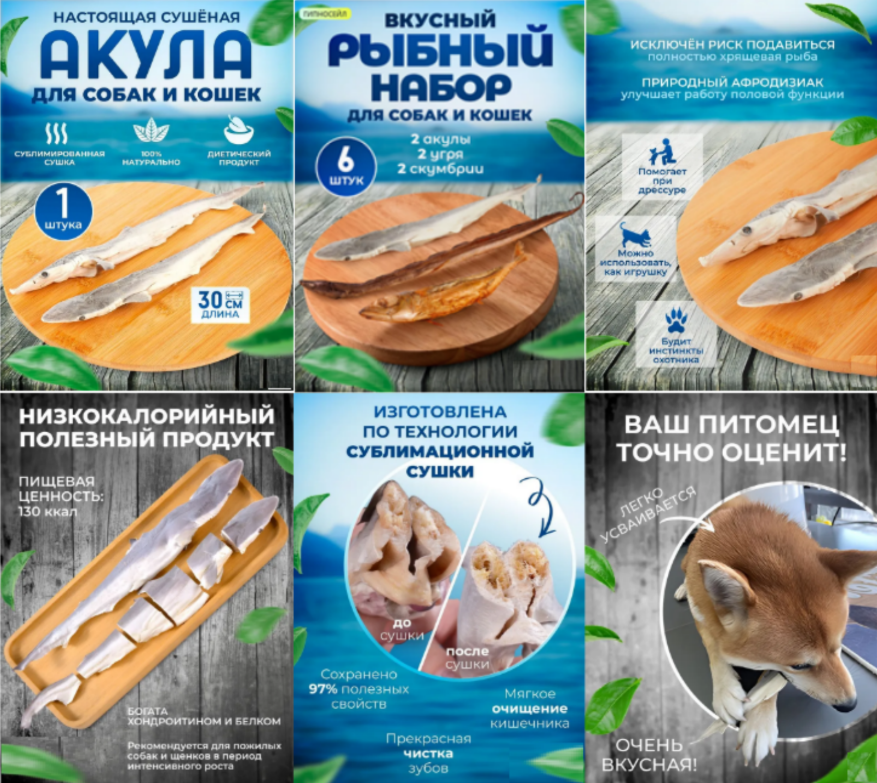
Scientists from the A.N. Severtsov Institute of Ecology and Evolution of the Russian Academy of Sciences, the P.P. Shirshov Institute of Oceanology of the Russian Academy of Sciences, and the Dagestan State University have found that the appearance of a new product in some Russian online stores – dried sharks (Fig. 1), intended for feeding and playing with pets (cats, dogs, and rodents), increases the already serious anthropogenic load on the population of the Pacific spadenose shark Scoliodon macrorhynchos.

Cartilaginous fishes (sharks, rays and chimaeras) are one of the oldest groups of lower vertebrates, which in recent decades have been subjected to serious negative anthropogenic impacts (overfishing, habitat destruction, environmental pollution, etc.). Many shark species are caught as a result of virtually unregulated and uncontrolled fishing and are used for the production of food and technical products. The Pacific spadenose shark Scoliodon macrorhynchos is an object of intensive fishing in most of the species range (distributed from Japan to the eastern part of the Indian Ocean). Its numbers in Chinese waters have been declining in recent years, while stocks around Taiwan and off the coast of Sarawak (Borneo, Malaysia) show signs of overfishing. This species, along with other representatives of the Carcharhinidae family, is listed in Appendix II of CITES (Convention on International Trade in Endangered Species of Wild Fauna and Flora) and has been assigned the IUCN (International Union for Conservation of Nature) status of NT (near threatened). Recently, a new product for pets has appeared in some Russian online stores (Ozon, Wildberries and RedMall) - dried gutted specimens of the Pacific sharpnose shark (Fig. 2 and 3), supplied from China. A study of the dried sharks purchased in the online store showed that they were all juveniles, which worsens the already threatened state of the populations of this species.

Addressing further threats to S. macrorhynchos populations requires a ban on undersized fisheries, improved regional and national fisheries management, regular population monitoring, and increased CITES enforcement of international trade controls.
Published data from the article: Orlov A.M., Zinevich L.S., Rabazanov N.I., Korostelev N.B. 2025. New product adds pressure on Pacific spadenose shark Scoliodon macrorhynchos (Carcharhinidae) // Ecologica Montenegrina. Vol. 83. P. 120–130.
